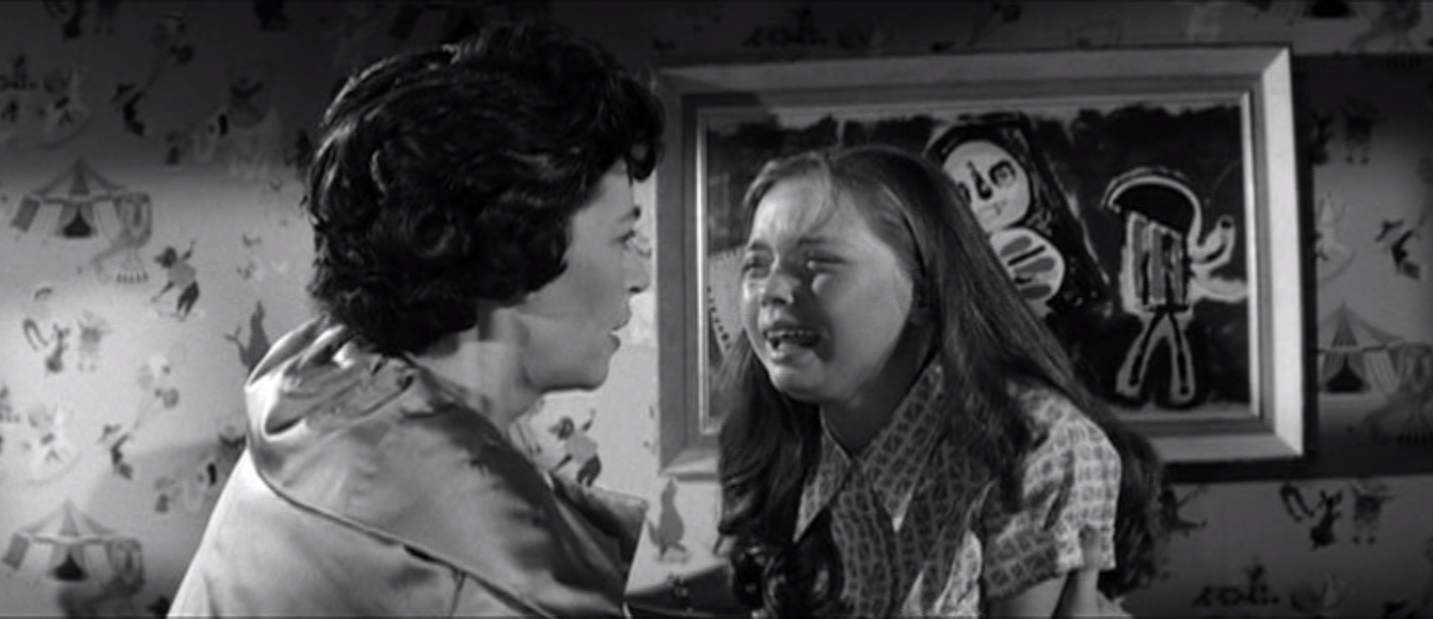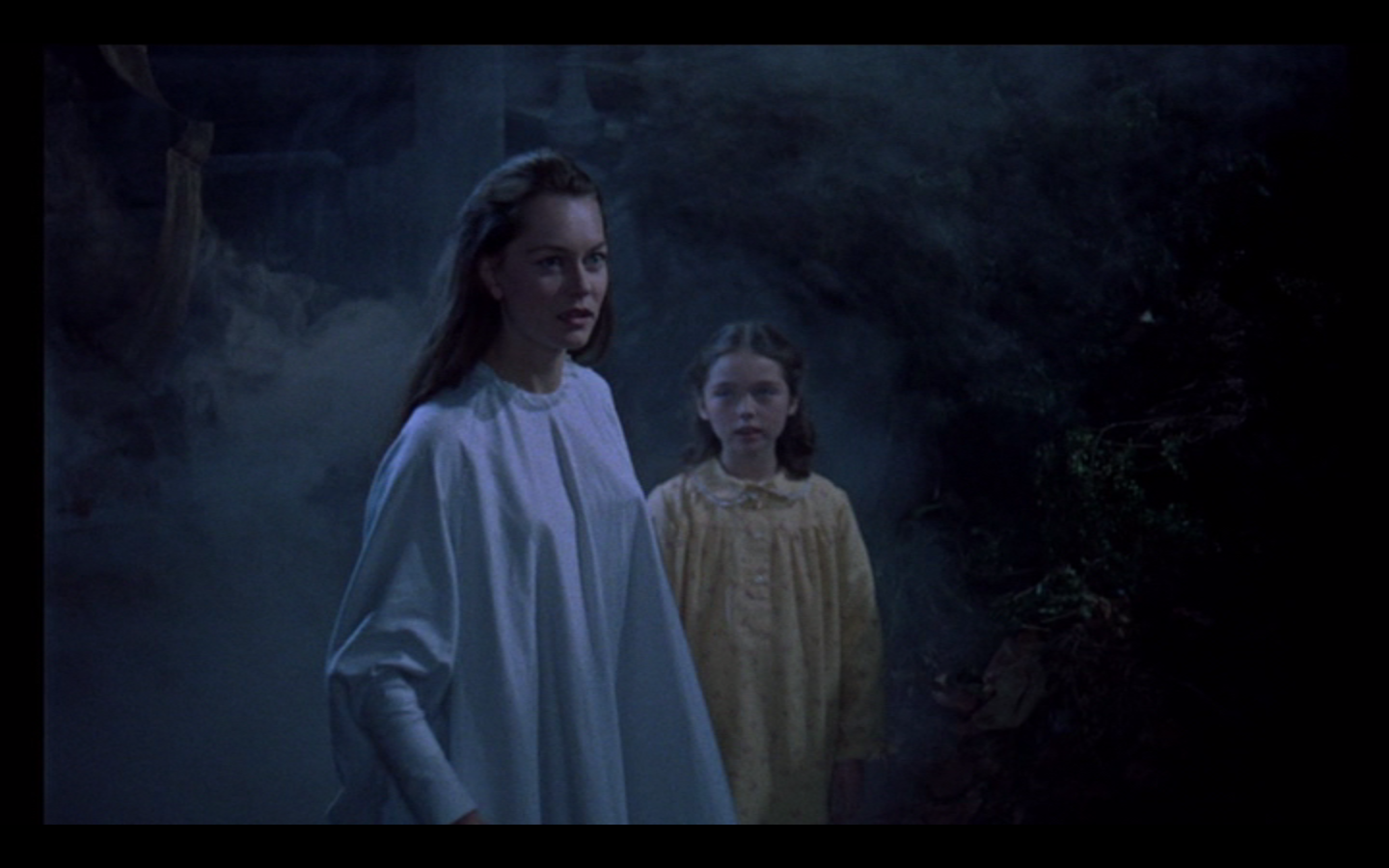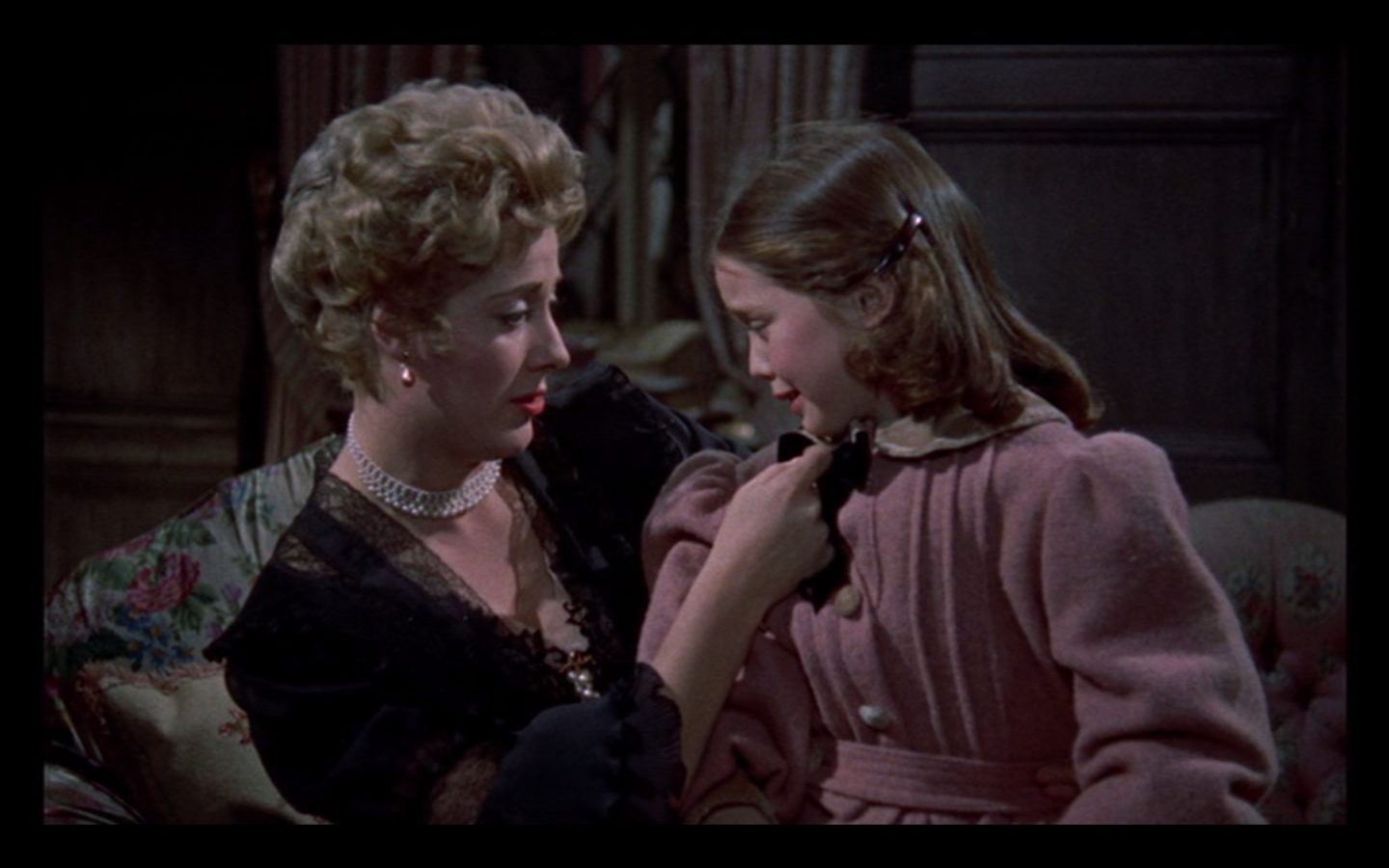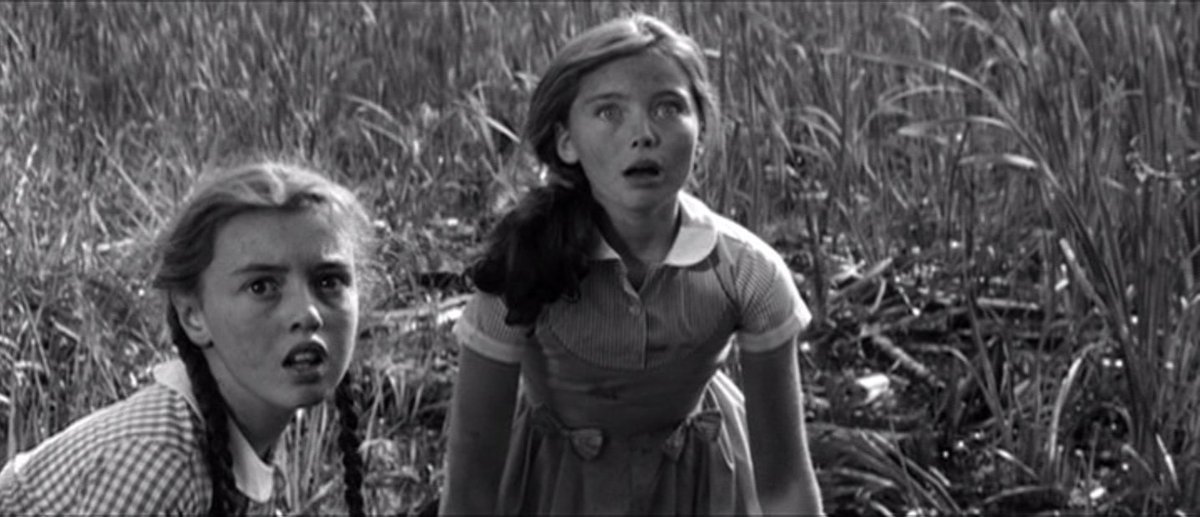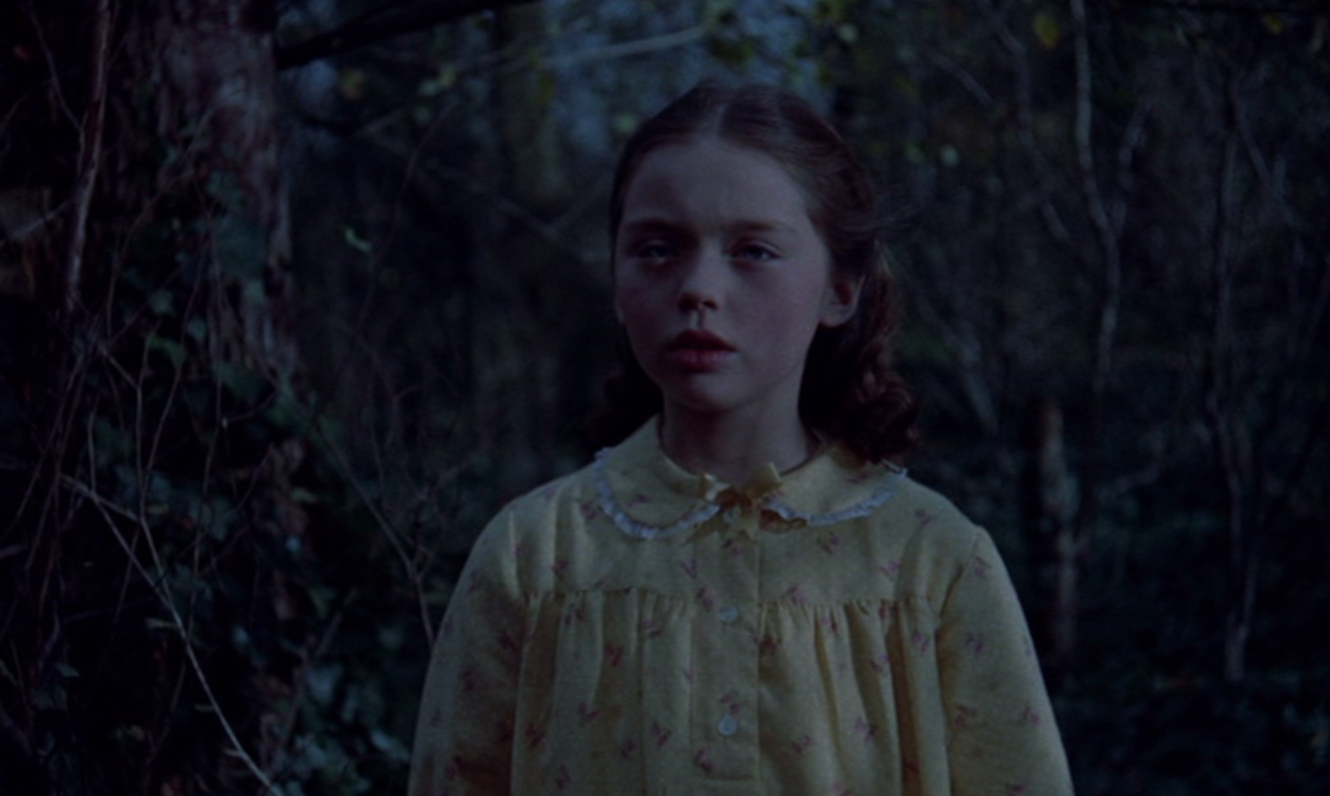Not many people can claim as many classic genre credits as Janina Faye. She appeared alongside Peter Cushing in Dracula, as Susan in Day Of The Triffids and starred as the young child who learns to Never Take Sweets From A Stranger.
SciFiNow spoke to Janina about her life in pictures…
Janina Faye originally dreamt of being a dancer. Starting with lessons at Barbara Speake’s dance school, she eventually moved to the Corona drama school in Chiswick.
Janina Faye: It was run by three sisters, and the lady who ran the drama side of it said to my mum ‘your daughter’s very expressive, have you thought about enrolling her in the school?’ because they had a school too. That’s how it started.
The school also had an agency, and the children were frequently sent for work as extras.
JF: I was sent with about five other children over to Shepperton Studios for a film called The Story Of Esther Costello, with Rossana Brazzi and Heather Sears and Joan Crawford. The only reason I got that – we weren’t asked to do anything other than line up and they went along and said ‘can you step forward?’ – was because I looked like Heather Sears. In the opening credits you see lots of Irish children playing in the mud, and they go into this area where they find what they think is hidden treasure – ‘black gold!’ – and actually they’re hand grenades. I don’t know why they are, but anyway… She picks up this hand grenade and goes ‘oh look at this, it’s a ring, it’s a magic ring!’, pulls it, and the whole place blows up. That’s the beginning of the film and that was the beginning of my career. I’m always being blown up, always being followed by Triffids, you know…
Janina couldn’t have known how successful her next film would be when, aged 10, she took on the small but memorable role of Tania in Terence Fisher’s Dracula, starring Christopher Lee and Peter Cushing. What was Terence Fisher like as a director?
JF: Everybody asks me that… but I was ten! I have a picture of me sitting on Terence Fisher’s lap reading Jack and Jill, which I’m sure was a press thing. It’s the same when people ask me about Peter Cushing – Peter Cushing was lovely, but I was a child of ten. They’re not going to be difficult with a child of ten. What I can remember of them both is that they were very very pleasant, very very helpful.
Janina’s most memorable scene sees her being rescued from the clutches of vampire Lucy (Carol Marsh) by Cushing’s Van Helsing.
JF: I remember him putting this coat around me, it had a brown fur collar, and in between shots he was saying, ‘darling, don’t go over there, you don’t need to go over there’ – and when I see the film now I see that was where the crypt was. They were very gentle – but I wouldn’t have thought they would be anything other than that with a kid. I’d like to think that, anyway!
Do you know, I hadn’t seen Carol Marsh since that day – lovely lady – and then they had a get together at Bray Studios, and she went, and I went! It was lovely – people are lovely at those things. Fans are delightful. I’m really glad I went because the year after that she passed away.
Film historian Jonathan Rigby described Faye as ‘one of Terence Fisher’s unusually good child actors’.
JF: It was a desire. It was just something that I really wanted to do. You think about when you’re a kid and you’re in the playground – well, I don’t know whether they do now because they’re always on their phones – but we always used to play act. It was that in reality. This fantasy – I was being allowed to do it and perform it and immerse myself into this magical land. I just enjoyed it.
Janina’s most memorable role for Hammer was as the lead in their atypical picture Never Take Sweets From A Stranger, a hard-hitting tale of child abuse and cover-ups. Her involvement with the film has a fascinating history, starting with her being cast in a play called The Pony Cart, which would be adapted as Never Take Sweets…
JF: It was a one-off Sunday production. I wasn’t yet 12, but because it was a Sunday production, my agent said, ‘does she need a special licence?’ and they said, ‘no no, it’s fine’. Then [socialite] Lady Lewisham got on her high horse and said ‘THIS IS A SEX PLAY!’ I got a huge amount of publicity – I got a Giles cartoon written about me! Then my mother got fed up with all this publicity – so I didn’t do it.
I’m not sure whether [director] Cyril Frankel knew that any of that had happened. [Hammer producer] Tony Hinds, or one of them, had been to see the play and said, ‘we have to make a film of it!’ Hundreds of us were sent up to the Hammer film house in London, we got recalls. Cyril Frankel wanted to draw out that natural thing. I thought, ‘I can do this!’ and that’s how I got that one.
When they launched Never Take Sweets, Hammer wrote to the British Board of Film Censors, and said, ‘we want to branch out; we want to do a decent drama. We don’t want to just be known as a horror, gory thing.’ It went backwards and forwards, loads of correspondence about what they could say, what they couldn’t say, what they could do, what they couldn’t do. Could they change certain wording, could they change certain scenes… and because they wanted it to be a film that would be acceptable, they did change quite a lot of stuff.
A particularly affecting moment in the film sees Faye’s character Jean undergoing a brutal cross-examination by Niall McGuinness.
JF: We got to that scene and I was thinking, we’re doing this really well! I started crying and my chaperone said, ‘stop, stop! She’s getting hysterical!’ and I was thinking, I’m doing my best here! I’m a good screamer and I’m good at naturally crying, but she told them to stop, and the director had to placate the chaperone! I knew it was a scene. I always knew that it was a film, the same as when I did Triffids, when I was told, ‘there is a Triffid coming for you.’ I knew it wasn’t actually going to eat me, for goodness sake! I wasn’t that stupid!
Anyway, they managed to get it released but the BBFC wouldn’t change the X certificate. What Hammer really wanted was for it to go out with a warning, they wanted it as an A so that parents could decide whether to take their child to see it or not.
When I went to America, they don’t even know that Hammer did Never Take Sweets From A Stranger. ‘Oh oh, is it a Hammer film?’ Because it had such a limited release. It was bypassed. There was this whole thing about the certificates. They were showing it to people at the NSPCC and they said, ‘you have to show this, it’s a brilliant film,’ and then other people were objecting to it, saying, ‘this will put mothers off reporting stuff like this,’ because if they reported it to the police… when to Patrick Allen’s character, the father, they say, ‘she’ll have to have an examination,’ and he says, ‘that’s enough! We’ll withdraw the case.’ That was a lot of what they were objecting to.
How well does Janina feel Never Take Sweets stands up today?
JF: I think it’s a brilliant film. I think it’s just as applicable now – everything that goes on in it – as it was then. If not more so! Sadly, abuse has not lessened. The fact that you’ve got – dare I say – people in high places who have been allowed to abuse, which is what this film also covered: everybody covered up because they didn’t want to lose their jobs, because he was the man of the town and he ran the businesses. Oh my god, how applicable is that now? It’s all there, isn’t it, and that was however many years ago!
Janina appeared in very small roles in Hammer’s Two Faces Of Dr Jekyll and the non-Hammer French co-production The Hands Of Orlac, starring Mel Ferrer. Her scene in Orlac is quite reminiscent of Never Take Sweets.
JF: I reckon you’re right – the directors must have thought, she’s good at screaming, she’s good at looking terrified, let’s have her.
In 1962, Janina starred in Don’t Talk To Strange Men, almost a thematic sequel to Never Take Sweets. The pulse-racing finale sees Janina abducted by a murderer.
JF: Again, it’s a very good movie! There’s a scene in it, if you look at the end, where they had to rewrite it. [Janina points to a scar on her finger] He throws me into the car, and the director said to me, ‘watch your hands as you get in.’ That is how I chopped my finger off – in that car door! The whole filming had to stop, my finger had to be put back on, I had to be taken to the hospital, they had to stitch it all up. There’s a scene where Christina Gregg [playing her sister] says to me, I’ve got this thing on my finger, ‘how’s your finger now?’
Janina took on the role of Susan in the first screen adaptation of Day Of The Triffids.
JF: I loved that! Of course, it was my introduction to being a movie star! My mum was so thrilled I was working with Howard Keel because they were the generation of Oklahoma! and Seven Brides For Seven Brothers. He was just delightful. I suppose because I was 12 it was a bit of sort of hero worship. Oh, he was lovely, and so charming! And Nicole Maurey – it was a great cast.
The film underwent reshoots which famously saw the addition of an entire subplot and conclusion.
JF: There are several stories going round about that. Freddie Francis did the reshoots. Bearing in mind I was 12, the story I was told was that the Americans said you couldn’t have a disaster movie where it was just disaster, where there was no conclusion, no resolve. They steered away from the book so much, took it worldwide, which is great, but then the whole world is a disaster and you can’t have that. That was the story I was told. Then when I went to a convention in Manchester, Freddie Francis said to me, ‘no, no, darling, it was because it was just so bad that they had to reshoot the ending.’ That’s what he said. I don’t know the truth. I know I lost my billing when they got Kieron Moore and Janette Scott in. The other question always is, ‘what was it like to travel abroad?’ but that wasn’t me. I never got that. I was on Shepperton lot!
Janina’s career continued for many years after her work for Hammer, encompassing episodes of classics such as The Likely Lads, Thriller, and even a Jackanory, but she moved away from the horror genre. It wasn’t until the 1990s that she came to realise the importance of her work for Hammer.
JF: My son said to me, ‘come on mum, I’m taking you up to London.’ It was the Barbican season, the first time they’d put all the Hammer stuff together, and they were showing Dracula and Never Take Sweets. It was possibly the first time I’d seen them run through on a big screen, because when I was little you weren’t allowed to see them! I said, ‘who are all these people?!’ and he said, ‘Mum, they’re Hammer fans!’ I said ‘Hammer fans? But Hammer was 20 years ago, 30 years ago!’ When I was outside, people were coming up to me and saying, ‘are you that little girl?’
Recent years have seen a number of restorations on Dracula, reinstating scenes previously cut from the British print…
JF: When they did the first rerelease I went and saw that. It’s difficult for me to comment because I’d never seen it before! How would I know there were bits missing? When I saw it on Blu-ray obviously it looked beautiful. The restored bits look a bit tame now, don’t they? You think, is that it? Is that what all the fuss was about?
How does Janina feel about her continuing association with Hammer?
JF: I had not realised what a strong part of film history Hammer was. I suppose it’s a bit like if you were associated with the Ealing films. As a kid you don’t realise that, and it was surprising to me that it’s still there. It’s got bigger, actually. I feel incredibly privileged to have been part of it.

